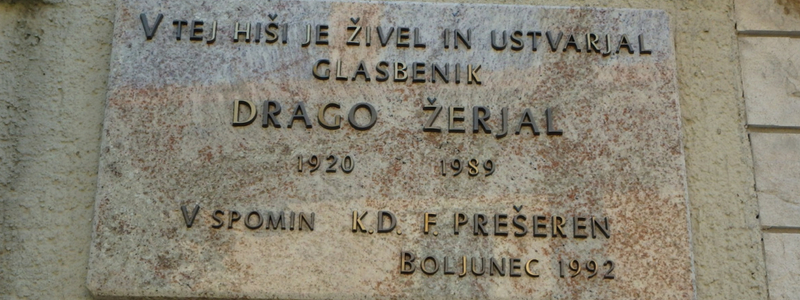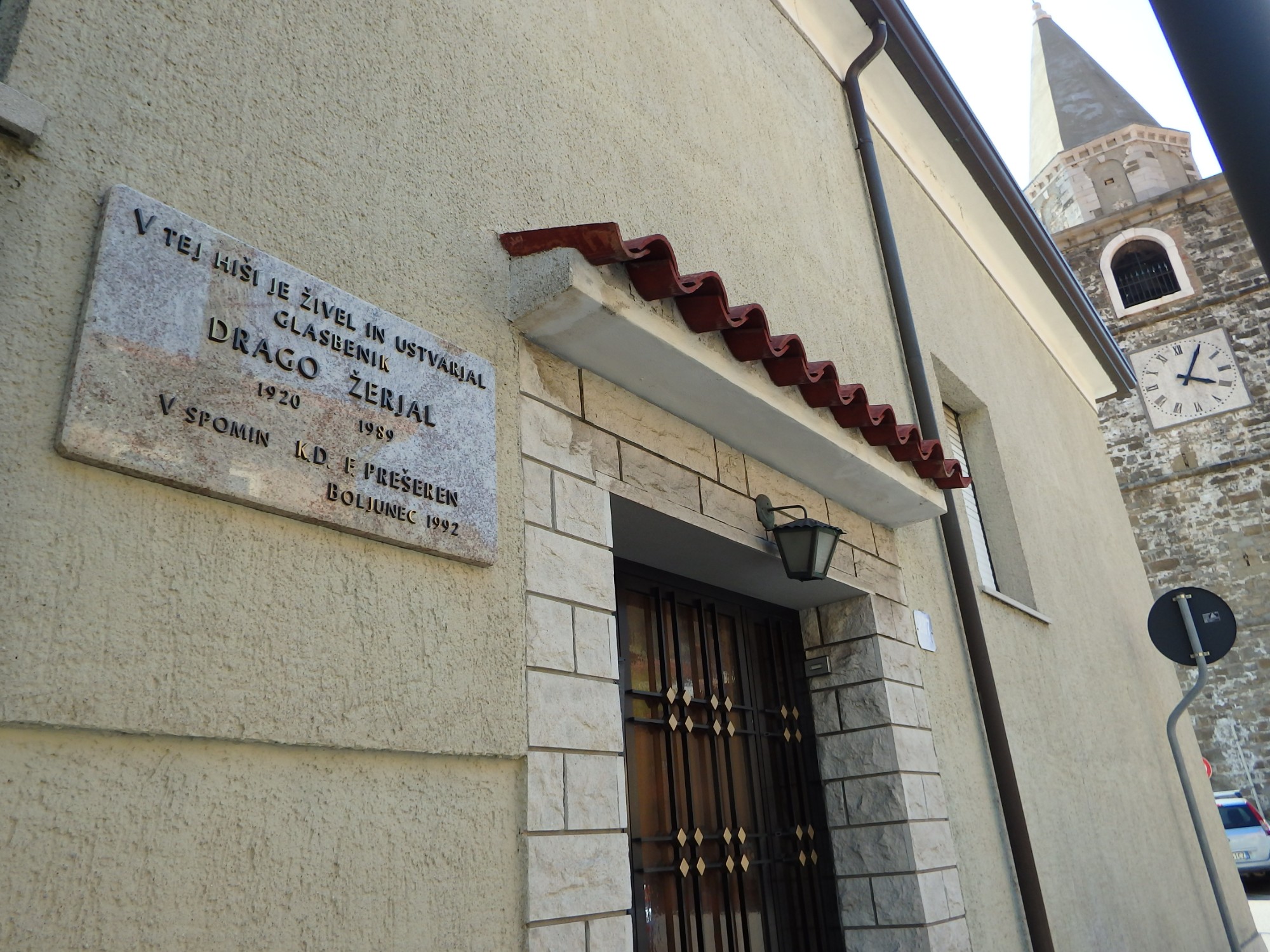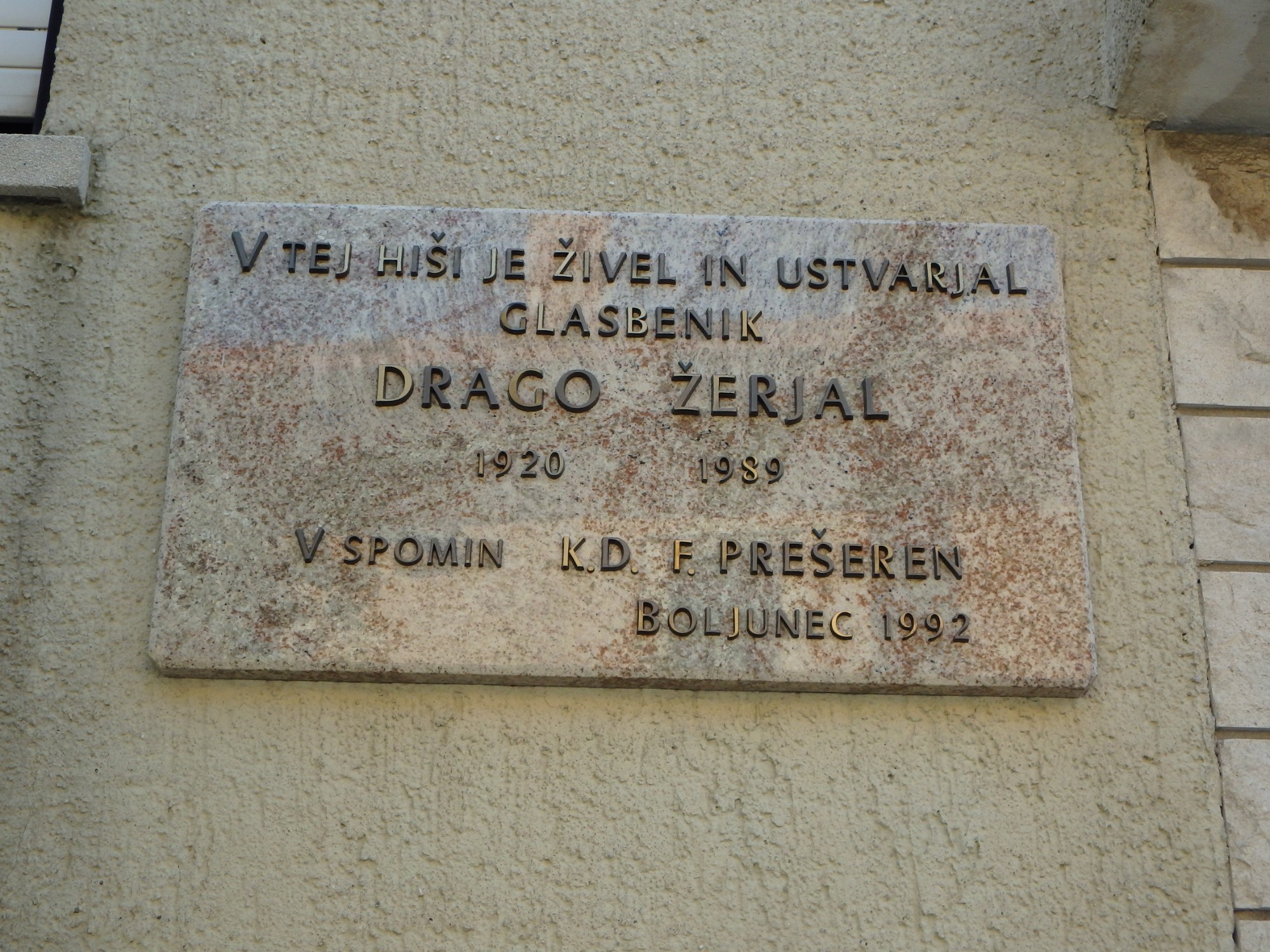In 1992, the Boljunec’s France Prešeren Cultural Society attached a memorial plaque to the house in Boljunec (Bagnoli della Rosandra) in which the composer lived and worked.
Drago Žerjal
Drago Žerjal (1920–1989), a member of the Slovenian ethnic minority in Italy, was a choirmaster and musician. He was born into a merchant family in Boršt (San Antonio in Bosco). At the age of 12, he moved with his family to Boljunec (Bagnoli della Rosandra). He attended an Italian teacher-training college in Trieste.
He served in the army until the fall of the fascist regime, and joined the partisan resistance forces in 1944. As member of the Fran Levstik Brigade, Žerjal taught singing to the combatants, and accompanied them on the accordion. He was later enrolled in a choral conducting course taught by Marjan Kozina. After completing the course, he was assigned to the propaganda division of the 7th Corps, where he established and conducted a choir. On Victory Day – 9 May 1945 – he was the first to be featured on Radio Ljubljana.
After the war, in 1946, he became the choirmaster of Boljunec’s local choir, and took the ensemble on tours to various venues. In 1963, he became involved in an initiative to establish a light music orchestra, Miramar, with which he performed as a musician and conductor at the 1st and 2nd Trieste Pop Song Festival. As a composer of pop songs, Žerjal received First Prize for Ko si kupim mali avto 500 C (When I Buy the Small Car 500 C) at the 1st Trieste Pop Song Festival, and won awards for the tunes Pismo iz tujine (A Letter from Abroad) and Tržaške lučke (The Lights of Trieste) at the 2nd Trieste Pop Song Festival.
Maia Juvanc


